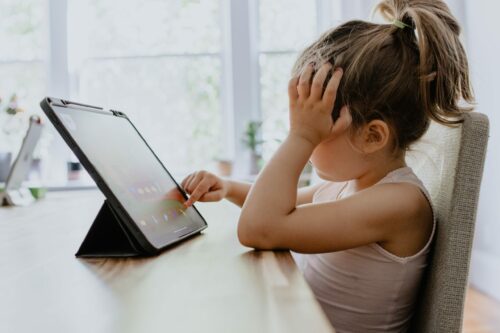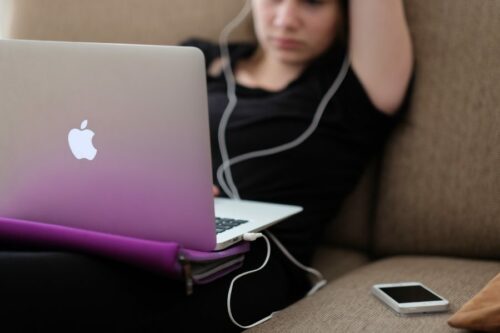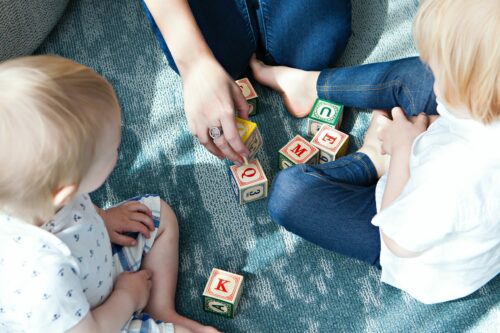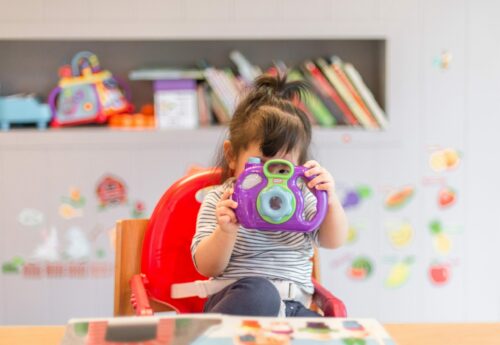If you’re a parent in this digital age, you may be wondering, “How do I protect my child from pornography?” or “What do I do when my child has seen pornography?”
This question is especially important as children are around technology and the internet for hours every day, especially those in school.
Just how easy is it for children to find pornography?
I’m glad you asked! But, you’re asking the wrong question.
Stop assuming that your child has to be the one looking for pornography. Instead, ask yourself how easy is it for pornography to find your child.
No parent wants to imagine that their kindergartener is going to go hunting for pornography. But I have heard stories of women discovering pornography as young as 5. Are they looking for it? No. They’re stumbling upon it or being shown it- by friends, siblings, and, in some cases, parents. (Note: exposing your child to pornography is not “education;” it’s abuse.)
View pornography as a predator and then ask yourself how you can best prepare and protect your child.
As parents, we have to realize any access to the internet has the potential to expose our children to pornography and their brains are not ready to process that.
It’s trauma.
As someone who was exposed to pornography at 13 while researching for school, and now the mother of two young daughters, this is especially important to me. I mean, my two year old already knows how to find videos of herself on my phone.
So, if you’re a parent concerned about protecting your child from pornography, I wanted to create a roundup of resources for you.
Resources for parents of young children:
Good Pictures, Bad Pictures Jr. – This book is the younger sibling to the best-selling Good Pictures, Bad Pictures by Kristen Jenson. Kristen wrote a recent post on the best age to talk to your kids about pornography. This book is for ages 3-6.
Good Pictures, Bad Pictures – This is a number one best-selling book, teaching children how to respond if when they stumble on or are shown pornography. In easy-to-understand language, this book helps parents have what can be a difficult conversation. I would say this is a must-read if your children have access to the internet (or if they have friends/older siblings who have access).
Conversations with My Kids: 30 Essential Family Discussions for the Digital Age – This is a resource from the team at Educate, Empower Kids. I have not personally read this one but I am excited to do so. It addresses “digital issues” like social media, pornography, and even artificial intelligence. EEK has a library of resources for parents addressing pornography, sexuality, and body image.
Also check out…
Resources for parents of teens/preteens
Protect Young Eyes – click the link and bookmark that page, trust me. PYE is an invaluable resource for parents. Basically they do all the digging and research so you don’t have to. Not sure what app your teen is talking about or how safe it is? PYE probably has an answer for that. They are big on online safety and protecting kids not only from pornography but any type of predatory online behavior. They also have an app with lessons!
NCOSE – The National Center on Sexual Exploitation is a non-religious wealth of information on the legal aspects of pornography and its links to human trafficking.
As a parent, you may be thinking, why does this matter? This matters not so that you shame your child for finding pornography. It matters because, for Generation Z (born in the 1990s to the early 2010s), social justice issues are tantamount. If you want to speak their language, frame things from a social justice point of view.
Fight the New Drug – Along the same lines, Fight the New Drug offers an interactive, research-based introduction highlighting porn’s negative impacts on individuals, relationships, and society–breaking the issue down to the basics.
Other Resources
Canopy App – I want to highlight this one first because it’s huge. So many children are exposed to pornography on accident. They aren’t getting on the internet thinking, “I know what porn is and I’m going to look it up.”
We can’t guarantee that our kids will never see pornography, but we can sure do everything we can to make it difficult for pornography to be found by them. That’s where something like Canopy comes in. Canopy is an app that blocks porn access across the entire web while still allowing safe content. It also monitors text messages to help prevent sexting. I can tell you that if this had existed and I had it, I would not have come across pornography the way I did. I will be giving away some accounts in the next issue of my newsletter, so please be sure to sign up!
Covenant Eyes – Covenant Eyes is known for their online accountability software, but they also have a wide range of resources, including resources specifically for parents. Check out those ebooks here.
Hopeful Mom– this blog, curated by Barb Winters, is geared specifically to encourage parents who have found their kids are already struggling with pornography.
Childhood 2.0 – This is a powerful documentary essentially pulling back the shades on the online world our kids are living in. Parents, educate yourselves.
Other documentaries out include:
This is, of course, by no means exhaustive. There are a growing number of groups concerned about the safety and wellbeing of children online and the negative effects of pornography. I do hope this has served as a starting point for you. If you are a parent, I hope you realize you are not in this alone.








